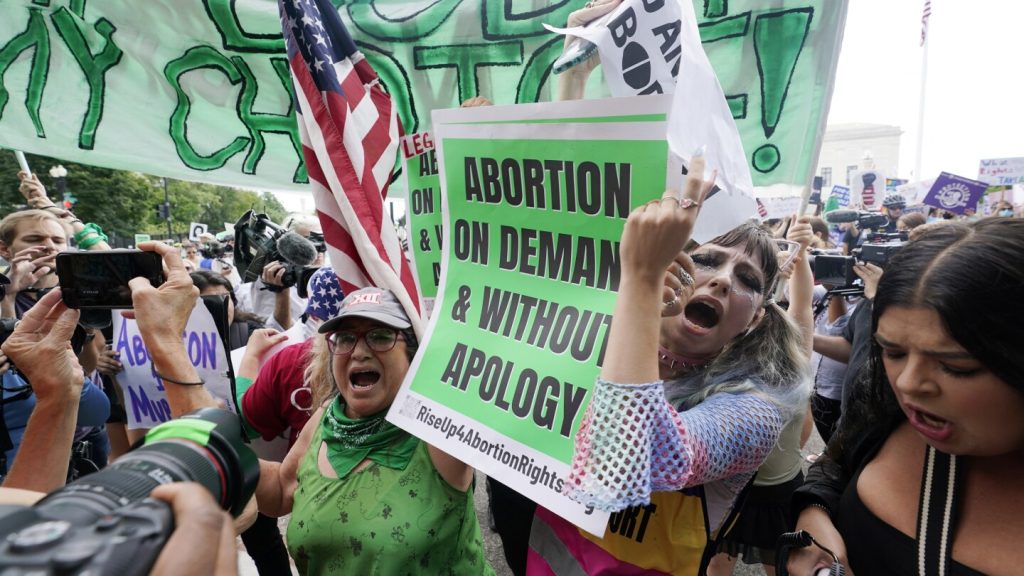Two years after a leaked draft of a U.S. Supreme Court opinion signaled significant changes in the nation’s abortion landscape, the issue continues to dominate courts, legislatures, and political campaigns nationwide. Florida recently implemented a ban on abortion after the first six weeks of pregnancy, joining other states with similar laws. In contrast, Arizona lawmakers repealed a total ban on abortion dating back to 1864, signaling diverse approaches to the issue across states. Additionally, the Kansas Legislature increased funding for anti-abortion centers, while advocates in South Dakota gathered signatures for a ballot measure to enshrine abortion rights in the state constitution.
The status of abortion laws in various states has been constantly evolving, with 14 states currently enforcing bans on abortion at all stages of pregnancy with limited exceptions. Democratic-led states have taken steps to preserve or expand access to abortion services. Despite over 20 states enacting abortion bans following the Supreme Court’s decision to overturn Roe v. Wade, studies indicate that the number of monthly abortions nationally has remained the same or even increased. Voters have supported the position favored by abortion rights advocates in all statewide ballot measures since the ruling.
The Supreme Court’s ruling in the Dobbs v. Jackson Women’s Health Organization case officially overturned Roe v. Wade in June 2022, following a leaked draft published in May of that year. Proponents of anti-abortion laws argue that the Dobbs decision allows the will of the people to be adhered to, while critics accuse abortion rights supporters of creating uncertainty around clear laws. The emotional debate surrounding abortion rights has led to significant legislative changes and court challenges, impacting individuals like Amanda Zurawski, who became an activist after being denied an abortion despite medical complications.
In battleground states like Arizona, the political debate over abortion has intensified. The state Supreme Court recently ruled that an old abortion ban could be enforced following the overturning of Roe v. Wade, leading to a repeal proposal that was passed and signed by the governor. States like Florida, Maryland, and New York are set to have ballot measures in November to protect abortion access, with advocacy groups on both sides gearing up for a heated battle. The issue is also playing a significant role in the upcoming presidential election, with President Biden and potential opponent Trump expressing contrasting views on abortion laws and access.
As states grapple with changing abortion laws, advocacy groups are mobilizing to support their respective positions on the issue. While anti-abortion groups focus on defeating measures to protect abortion access in states like Florida, pro-choice advocates are working to enshrine bans or expand abortion rights in other states. The highly charged political climate around abortion rights is expected to drive continued debate and legislative action in the coming months, with the outcome likely to have far-reaching implications for individuals, communities, and the nation as a whole.


